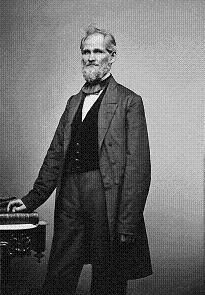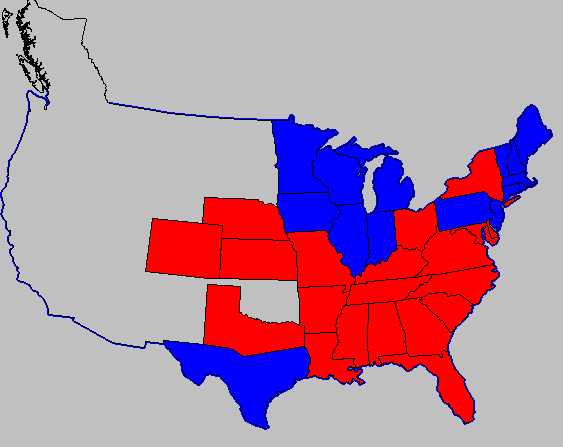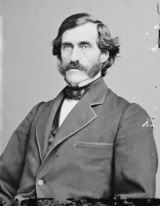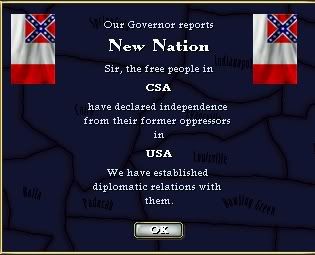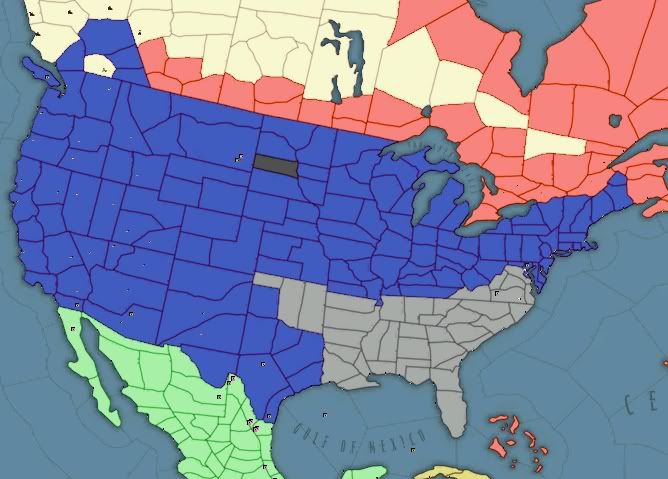Pope’s Little War and the Scandal of 1865
---
Patterson’s second term began with mixed results. On the one hand he was able to push through some legislation on the waning days of congress; on the other hand, he was about to loose control of the House and Senate. Republicans did surprisingly well in the Senatorial election, sweeping all of the Ohio Valley states, and even making headway in Virginia and South Texas. Schuyler Colfax, a Republican from Pennsylvania, had taken over as Speaker of the House, and he, alongside other Republicans, dominated the legislature from then on out.
Patterson, following his own agenda, then did some much unexpected things. Lewis Cass, his new Secretary of State (Stephan Douglas having passed away in 1861) was sent on a journey to visit the governments of many of the Central and South American countries who had stabilized a bit in the 1850’s. Cass’ report to Congress was distressing. Governments were unstable, and European involvement, despite the Monroe Doctrine, was increasing. Recently, fears of European military involvement in Mexico and Central America were rising, especially in the highly unstable United States of Central America.
The United States of Central America
The USCA had lived well beyond its means. Revolts had plagued the country in the 30s and 40s. The 50s saw a respite, but as the 60s dawned, a whole new wave of revolt wracked the country. Cass proposed that the United States help her southern compatriot, before the Europeans stepped in. He proposed a plan, endorsed by Patterson, to send 40,000 men into the Republic to put an end to the revolts once and for all. General Pope would be called upon to take command of the “Central American Intervention” and stabilize the little Federated Republic.
This was met with a resounding dismissal by the Republican congress. The use of American troops on foreign soul was outrageous to most of them. The war with Mexico had been one of liberation, as had the brief scuffle in Texas. This was out right aggression. The majority of Republicans sent the idea away in tatters, and Cass was suddenly under fire. Patterson, undeterred, ordered Pope to set sail anyway. On October 9th, 1865, General John Pope landed with 30,000 infantry, and 10,000 cavalry landed and immediately set about dispersing the army of the USCA. In reaction, the government of Mexico mobilized in defense of her “ally” and crossed the border into South Texas, America was at war once again.
Daniel Clark
Patterson, thinking he could end the war quickly and be done with it, was sourly surprised when he was called before Congress for an impeachment. Accused of High Crimes and violation of the Constitution (for declaring war, a privilege reserved to Congress), Patterson had little to say in his defense beyond the claim that he had not declared war. Meanwhile the accusers piled evidence against him, including his replacement of naval officers who were thought to be Republicans and the bribing of USCA officials to allow US troops to land. By the end of the month, Patterson found himself impeached, and then shortly thereafter removed from office. James Buchanan, who rarely had moments of genius, suddenly had one. Rather than face the tribunal himself, he testified against Patterson, and resigned as Vice President.
The succession then fell to the President
pro tempore of the Senate, Daniel Clark. Clark was a New Jersey Senator who had been called upon to serve in the stead of a ill Senator. He was re-elected in his own right and rose through the ranks to become President pro tempore. Clark was hastily sworn in on January 1st, 1866. Unfortunately an election was just around the corner, but in the nation’s current disarray (fighting two wars without a President) it was decided to follow previous precedent and extend the election deadline to 1868. This would allow Clark to fill out a 2 year term and stabilize the country for the time being. This would prove to be naive.
The Democrats in Congress had voted, for the most part, against impeachment, merely to avoid loosing hold on the White House. When the tide turned against them, in great part thanks to the John S. Carlile of Virginia (who was for impeachment from the start) and Garrett Davis (who crossed the isle when Buchanan testified), many Democrats left Washington. Suddenly the words of William Henry Gist and Isham Green Harris came back to the present. Secession was the word of the day. Many men in the South saw the sudden Republican takeover of the White House as a coup, inspired by greedy New England merchants and violent Midwestern abolitionists.
Even as General Almonte of the Republic of Mexico crossed into San Antonio and crushed an American army nearby, the Southern states were calling for independence from the North. On April 1st, 1866, South Carolina governor Andrew Gordon Magrath called the state representatives to Charleston for a conference. Former governor William Gist and William Porcher Miles, a well known politician within the state both championed the cause of secession. Very few voices spoke out against the idea, and by the end of the month the
Declaration of the Immediate Causes Which Induce and Justify the Secession of South Carolina from the Federal Union was issued. On May 26th, 1866 South Carolina declared itself independent of the United States of America.
"The times that try men's souls."



